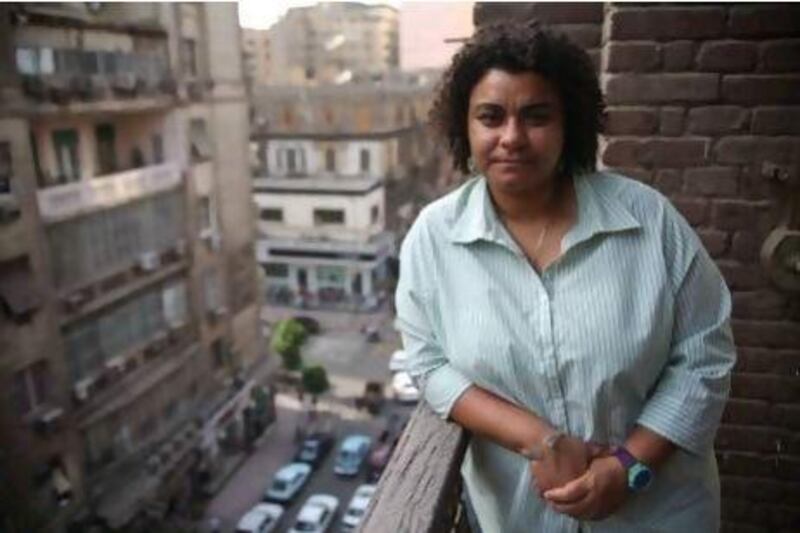CAIRO // Increased involvment in politics, a bigger role in business and equal rights to men.
These promises have been made to women by Egypt's presidential candidates from across the political spectrum as they seek to pull in female votes ahead of this week's election.
But women activists are worried politicians are merely paying lip service to improving women's rights and, in some cases, may even roll back some of the advances made in recent years.
Instead, what many here see as more pressing issues of the economy, religion and security have overshadowed calls for raising the status of women in Egypt, less than a year and a half after female activists helped lead the charge in the uprising that toppled President Hosni Mubarak.
Women have remained under-represented in political movements that have gained influence since the demonstrations in Tahrir Square. Women won only 12 of the 508 seats in the Egyptian parliament after many parties placed their obligatory female candidates low on electoral lists.
Women account for 52 per cent of eligible voters in Egypt, but international witnesses during the elections said they saw "widespread pressure" on female voters, who often voted for the candidates supported by male family members.
Front-runners in the presidential election, from the former foreign minister Amr Moussa to the Muslim Brotherhood's Mohammed Morsi, have called for equality and economic development for women, but they offer few specifics on how they plan to do this, activists said.
Many remain unconvinced that improving the situation for women in Egypt is a priority.
"No one says how we can overcome all these issues," said Esraa Abdel Fattah, who created a Facebook page that helped kick off the April 6 Youth Movement, one of the major organisers of the January 25, 2011 demonstrations that sparked the uprising.
"We need a plan. We need to see that we have resources on the ground, how we can use those resources." she said.
Egypt ranked 113 out of 187 countries and territories in the United Nations Development Programme's 2011 Gender Inequality Index, which measured the gender gap in terms of reproductive health, empowerment, and the labour market.
Female protesters have recently received several violent reminders of the sexual harassment that has long run deep in society here.
Rights groups accused the army of performing "virginity tests" on female protesters last year and this month said soldiers and prison authorities sexually assaulted female protesters during and after Cairo clashes.
A demonstration marking International Women's Day last year was attacked by men who surrounded and sexually harassed women.
Dina Abouelsoud, a hostel owner who founded the Revolutionary Women's Coalition to strengthen female representation in revolutionary politics, said candidates would do well to offer more to women in their campaigns.
Female voters, she said, still make-up a large constituency that may force politicians to address issues that affect women.
"It will take ages," she said. "Women have to make women's rights a voting issue."
In the short term, she worries about what may happen if an Islamist comes to power. The Islamist majority in parliament has overseen discussions about legalising female genital mutilation, or female circumcision, which is a custom in Egypt, to prepare women sexually for marriage and adulthood. It was banned in recent years but is still widely practised.
Islamists also have discussed eliminating the progress made in divorce and child-custody laws.
"If one of the Islamists wins, it's very risky for human rights in general and women's rights in particular," Ms Abouelsoud said.
Many candidates have included women's empowerment in their electoral programmes but speak in generalities, devoting most of their pledges to other topics.
Mr Moussa hails women's contributions during the uprising last year, pledging to strengthen women's representation in politics and state institutions and promising a set of social services for the most vulnerable female citizens.
Mr Morsi's campaign echoes calls for economic assistance to women by giving "special support to women doing economic activities such as small businesses, [encouraging] pioneer women managing their own private enterprises" and "changing the negative stance of Egyptian culture regarding women's political participation by presenting successful role models and figures."
Fellow Islamist Abdel Moneim Aboul Fotouh has spoken of women's contributions to Egypt, and his programme includes "creating a climate that realises full participation for women in society at all levels," among other human-rights pledges.
Ahmed Shafiq, a former air force commander and Mubarak's last prime minister, backs building a democratic state based on social justice, and Hamdeen Sabahi, who ascribes to the political philosophy of former president Gamal Abdel Nasser, similarly incorporates the principles of equality and individual rights into his platform.
Angie Balata, who spent long days in Tahrir Square during the uprising and has returned frequently since for the protests that continued against the military rulers, is not concerned about an Islamist win. She says much anti-female discrimination, violence, and government policies stem from the time of secular leaders such as Mubarak, and in any case, thinks Islamists will not be able to rock the social status quo too much.
As long as cultural and religious norms continue to relegate women to secondary status, Ms Balata said, politician's ploys to place them on party lists or in symbolic positions will have no real effect.
"They're quota filling. They're not actually doing anything," said Ms Balata, who works in higher education. "That doesn't mean anything as long as the rhetoric in the country isn't actually changing."





